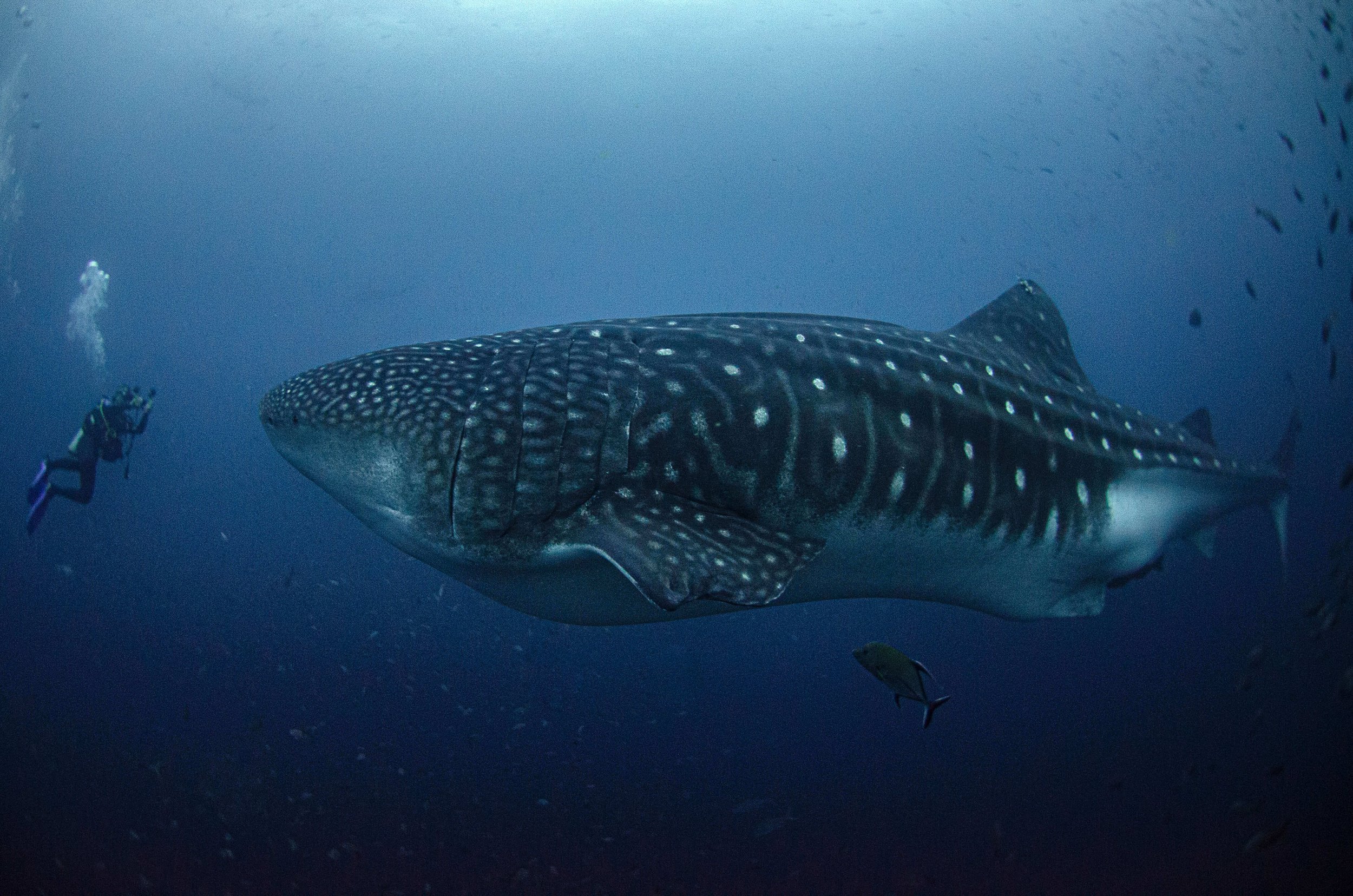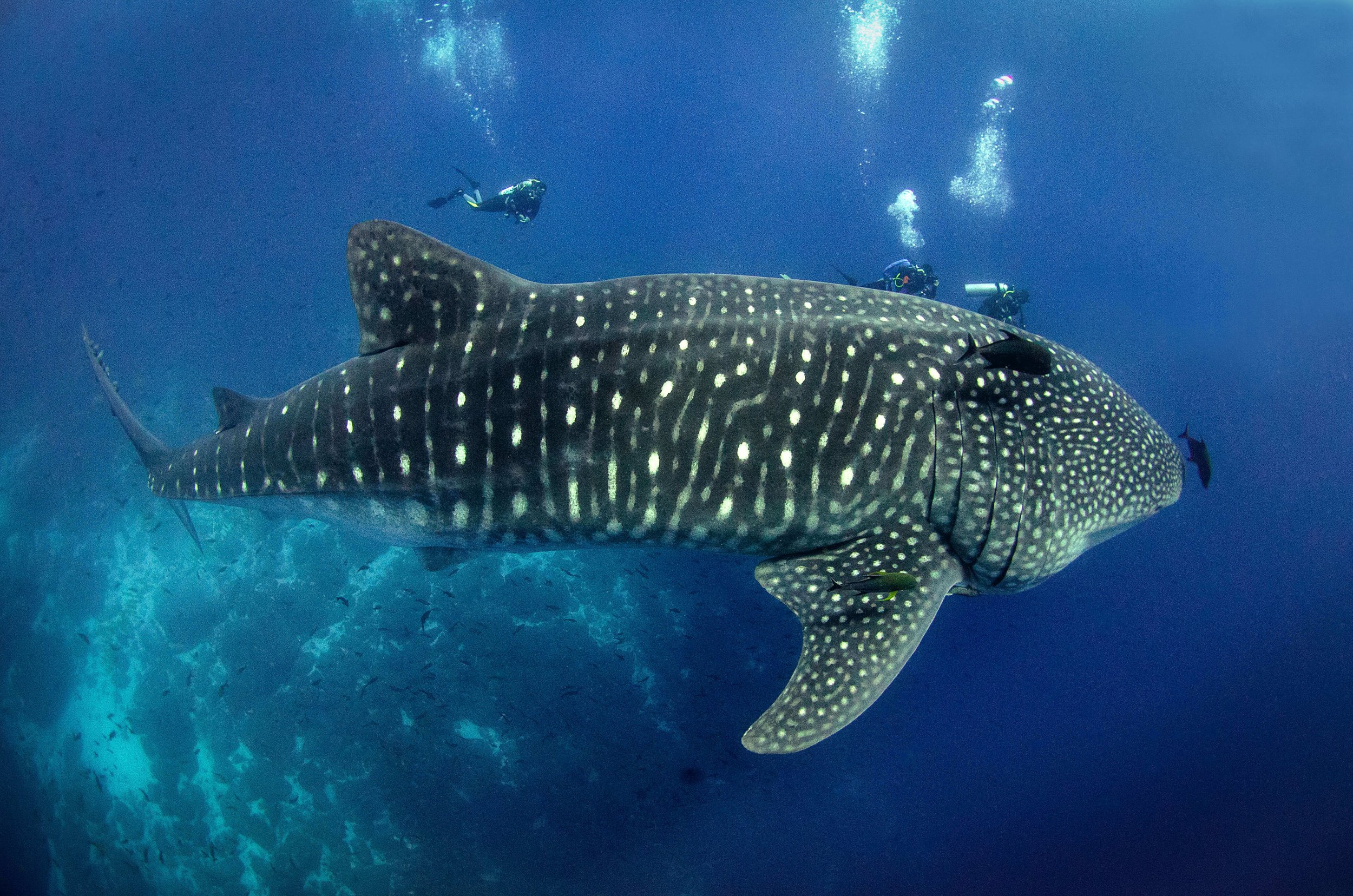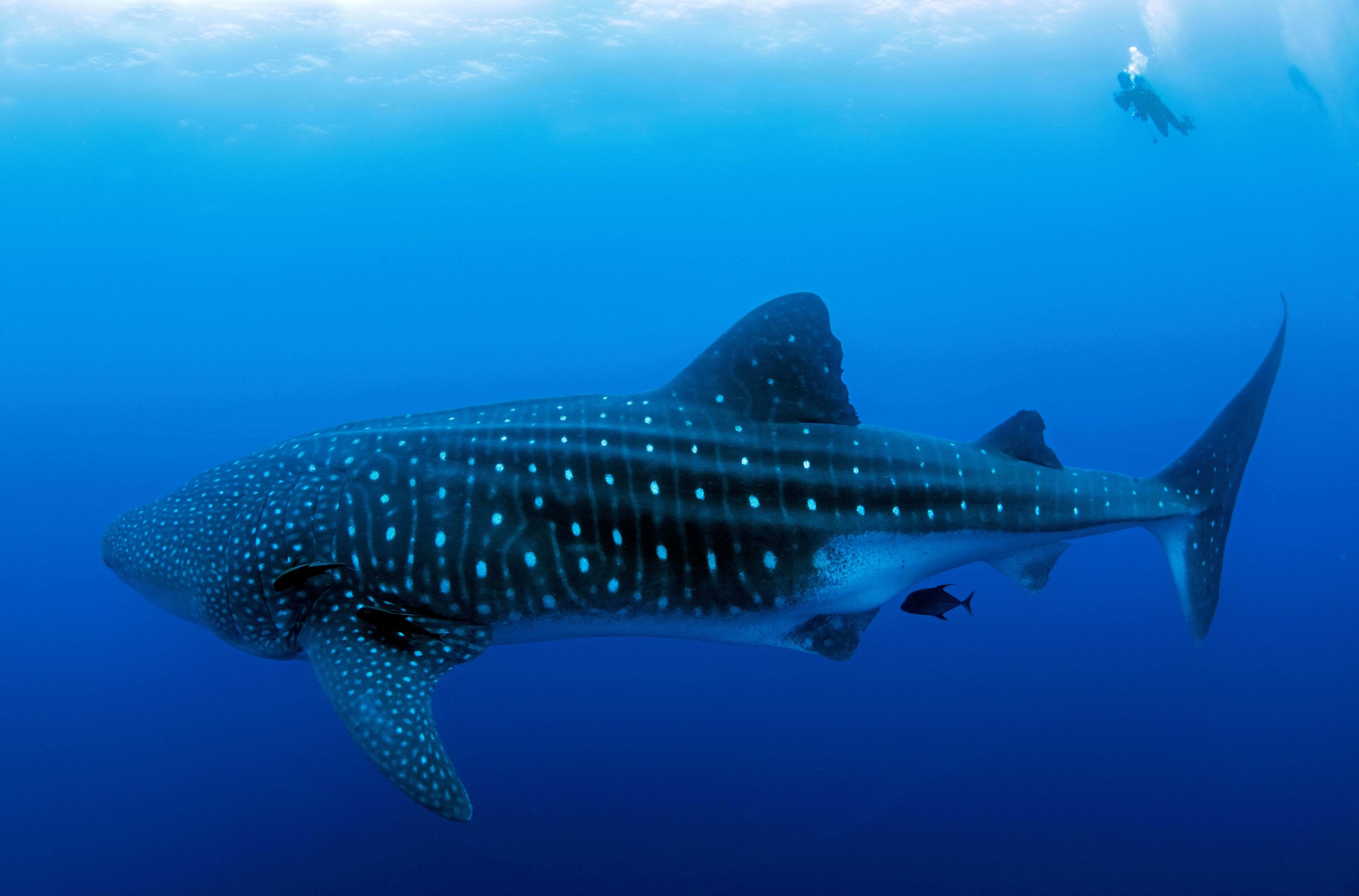Protecting Giants, Conserving Oceans.
The GWSP was born out of a deep curiosity about the magnificent whale sharks and an enduring love for the Oceans that surround us.
Who We Are
We are an international team of passionate marine scientists, conservationists, and ocean advocates united by a shared commitment —to unlock the mysteries of whale shark ecology, behavior, and life history.

What We Do
At the Galapagos Whale Shark Project, we employ a variety of innovative techniques to study and protect whale sharks, gathering crucial data to advance conservation efforts for this endangered species. Our research aims to better understand the behaviors, movements, and ecological roles of these gentle giants, all while contributing to marine protection strategies.
How to Help
You can support whale shark conservation in a variety of ways!
-

Make a Donation
Fund critical shark research and conservation efforts, ensuring the protection of these endangered giants.
-

Name a Whale Shark
Contribute to conservation by naming a whale shark and supporting vital research initiatives.
-

Adopt a Whale Shark
Directly support our satellite tagging program and receive updates on your shark’s journey.
-

Dive with our Partners
Promote sustainable tourism by choosing responsible dive operators that support ocean conservation and research.
-

Shop our Whale Shark Apparel
Support our mission by purchasing eco-friendly products, with all proceeds funding whale shark research.
-

Become a Citizen Scientist
Participate in real shark research! Learn how to collect data, submit whale shark ID photos, and contribute directly to conservation efforts.
Take Action & Raise Awareness
Join the movement to protect whale sharks! Follow us on social media, share our mission, and help spread the word about ocean conservation. Stay engaged—subscribe to our newsletter for exclusive updates and our annual impact report.
Every voice makes a difference!
We are a 501(c)(3) nonprofit organization in the United States.

What is happening to whale sharks worldwide?
In the past 75 years, global whale shark populations have declined by 50%.
As a highly migratory species, whale sharks spend much of their lives on the move and rarely within the boundaries of marine protected areas (MPAs), especially since only 3% of the ocean is fully protected. In the open ocean, they face a plethora of anthropogenic threats, ranging from targeted and incidental fisheries, vessel strikes, marine plastic pollution, and the growing impacts of climate change, which could alter their distribution. As whale shark scientists, our mission is to identify the critical ocean areas essential to their life cycle, with the goal of establishing new MPAs to prevent this species from extinction.



 Donate
Donate

